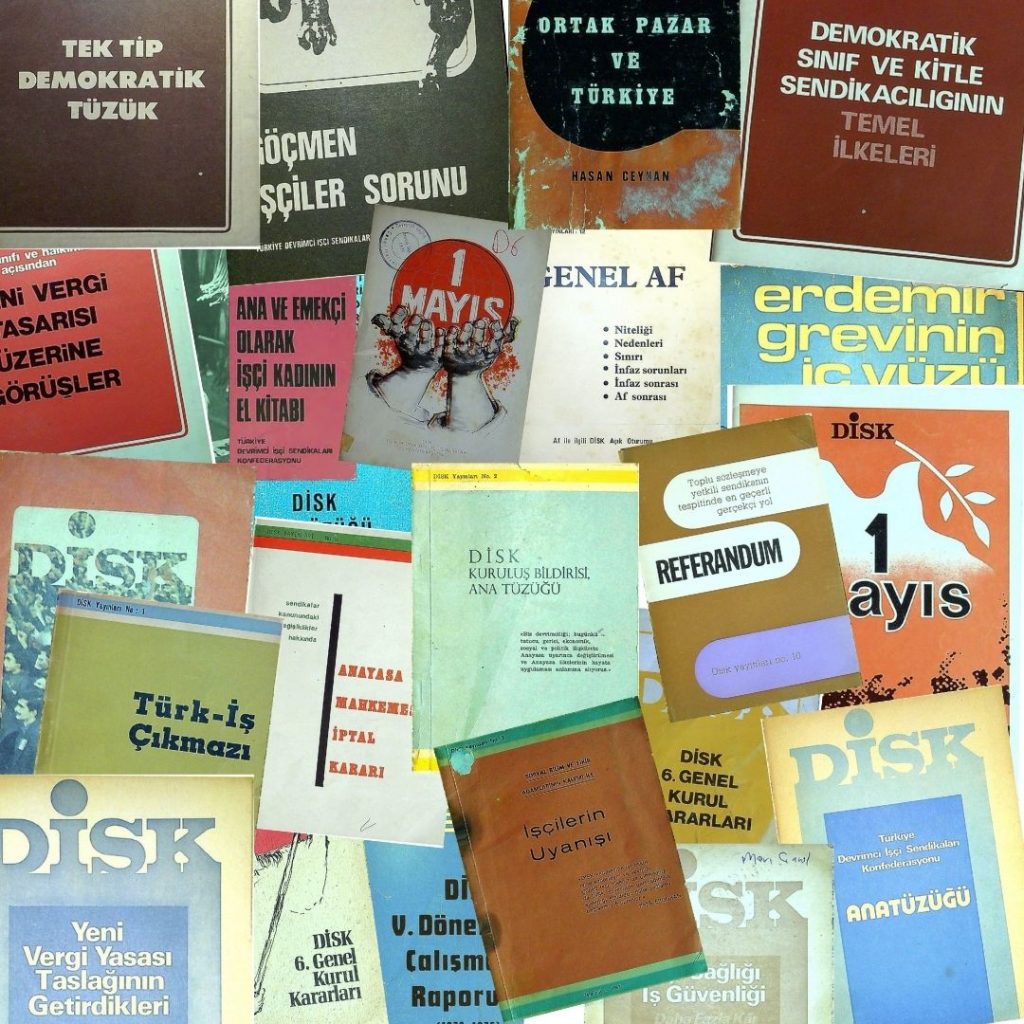The history of labour unions in Turkey dates back to 1947, when the one-party period had just been over. With the Law on Unions passed and enacted by the Parliament on February 20, 1947, employers and workers were, for the first time, granted the right to unionize in Turkey.
On February 13, 1967, 15 years after the Confederation of Turkish Trade Unions (TÜRK-İŞ) emerged as “the first nationwide union organization”, the Confederation of Progressive Trade Unions of Turkey (DİSK) was founded as an “independent and democratic class-based organization.”
As pointed out by Oya Baydar in her 1998 book, the notions of “class” and “class struggle”, which had long been rejected by the TÜRK-İŞ, became a part of the movement of unionism in Turkey thanks to DİSK.
Since then, the confederation has weathered quite a lot of storms in its over 50 years of history: Its Founding Chair Kemal Türkler was assassinated on July 22, 1980, a few months before the military coup on September 12; after the coup, its activities were halted for 11 years, its entire property was confiscated by a decree, its 67 executives were arrested and 78 people faced capital punishment in a 1,477-defendant trial…
With such a long and difficult past behind and still facing numerous hardships together with the working class, DİSK has memorialized its years-long contribution to Turkey’s labour movement with a recent book entitled “The History of DİSK: Establishment, Resistance, Existence (1967-1975)”.
Even though the book, or rather its first volume is unfortunately only in Turkish, at least for the time being, it is still worth taking a closer look at how the idea of writing a detailed history of the DİSK first came up, why this historiography is so important for the confederation, what one should expect to find in this first volume and in the ones that are soon to follow





